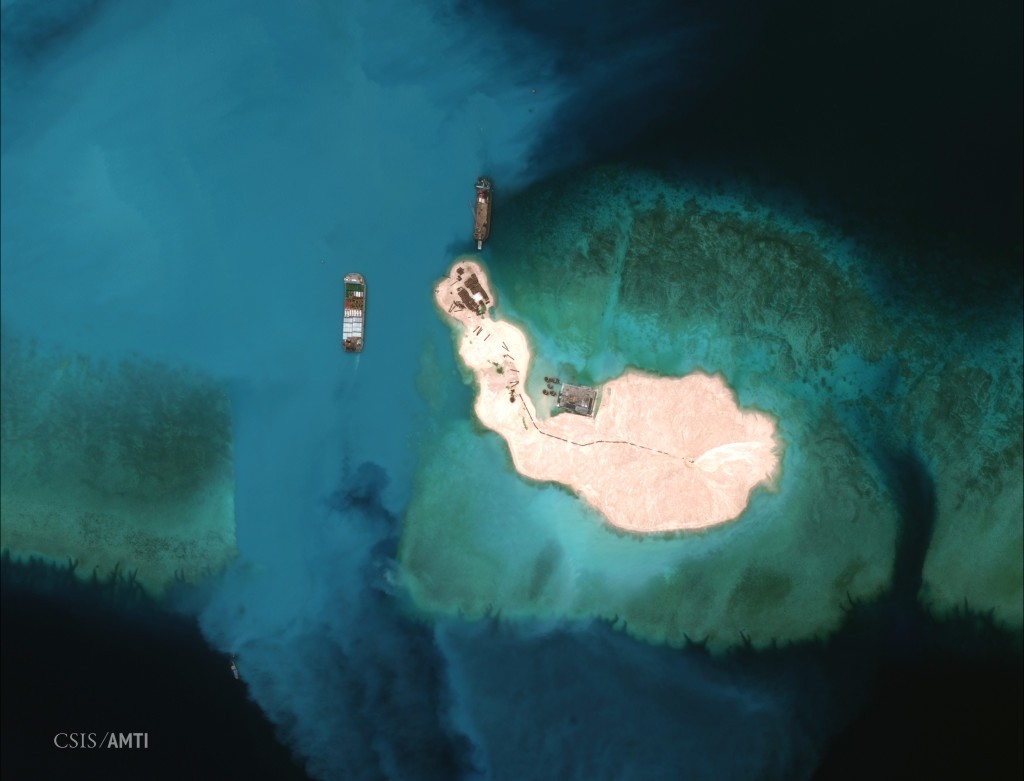
From Asia Maritime Transparency Initiative website ( https://amti.csis.org/wp-content/uploads/2015/04/mischief_mar16_2015_ge01_southsite-1024×781.jpg)
THE reclamation activities of China in Panganiban (Mischief) Reef, an area within the Philippines’ exclusive economic zone in the disputed West Philippine Sea (South China Sea), has progressed in a few months, latest satellite images showed.
“A chain of small, artificial land formations is visible. New structures, fortified seawalls and construction equipment are present at several locations along the reef, the Washington-based Center for Strategic and International Studies’ Asia Maritime Transparency Initiative said on its website.
The images were taken last March 16.
“Several dredgers are also present, and construction appears to be ongoing,” it added.
The entrance to the reef has also been expanded to a width of about 275 meters.
“The southern platform has been further expanded using sand recovered from the reef’s southern entrance,” the CSIS said.
Last February, the Philippines said that the Chinese was engaged in dredging activities in the Panganiban Reef.
It was in 1995 when China first occupied Panganiban Reef and built a military garrison.
China has claimed most parts of the resource-rich West Philippine Sea and has been building structures in disputed areas to assert its territorial claim.
Critical concern
Defense spokesperson Peter Paul Galvez said the activities in the West Philippine Sea were a “critical concern.”
“It’s a major or critical concern in our national security, implications of such action is beyond measure…They have to dismantle it. It’s a concern not only of our country but of the whole international community,” he said.
He said China’s moves would also have economic implications.
“It will hit the whole region actually. The whole region, economically. Pwede nila gawin dyan, mangisda sila dyan, ubusin nila lahat ng isda. Kontrolado na nila yung natural resources with what they are doing parang gumagawa sila ng pader. Lahat ng resources within that [area] babakuran na nila yan,” he said.
The Philippines has a pending arbitration case concerning China’s massive territorial claims in the disputed waters but the latter has repeatedly refused to participate. AC